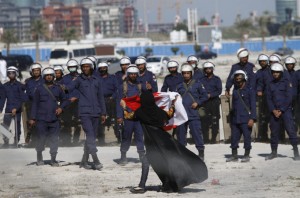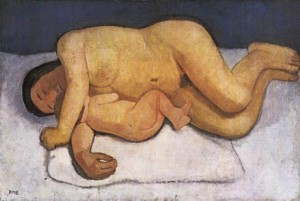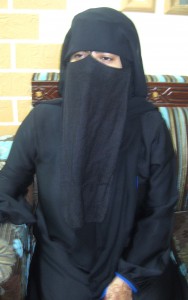This week’s decision by the Bahraini court of appeals to uphold the prison terms against Bahraini opposition activists is a travesty of justice and an indication that Bahraini repression continues unabated.
Bahraini officials, when confronted with angry world reaction to the court’s decision, cynically hid behind the claim they would [...]]]>
 This week’s decision by the Bahraini court of appeals to uphold the prison terms against Bahraini opposition activists is a travesty of justice and an indication that Bahraini repression continues unabated.
This week’s decision by the Bahraini court of appeals to uphold the prison terms against Bahraini opposition activists is a travesty of justice and an indication that Bahraini repression continues unabated.
Bahraini officials, when confronted with angry world reaction to the court’s decision, cynically hid behind the claim they would not interfere in the proceedings of their “independent judiciary”.
Despite the threat to U.S. national interests and the security of U.S. citizens in Bahrain and elsewhere in the Gulf, Washington remains oblivious to the ruling family’s violent crackdown against peaceful protesters in the name of fighting “foreign elements”. Pro-democracy Bahrainis are wondering what we are waiting for.
Because of our muted reaction to what’s happening in Bahrain, the ruling family and their Saudi benefactors have not taken seriously Western support for democratic transitions in the Middle East.
The United States and Britain maintain deep economic and security relations with these states but also enjoy strong leverage, including the U.S. Navy’s Bahrain-based Fifth Fleet, which they must revisit in the face of continued egregious violations of basic human rights by some of these regimes. Bahraini civil rights organisations and activists are expecting the United States to use its leverage to end regime repression.
Despite their pro-Western stance, there is nothing exceptional about the autocratic Gulf Arab regimes. And they should no longer be given a pass on the importance of democratic reform.
Staying in power will require Bahrain’s Al Khalifas and other Gulf tribal family rulers to do more than push a vicious sectarian policy and employ slick public relations firms. Their cynical and deadly game might buy them some time, but, in the end, they will not be able to escape their peoples’ wrath.
In the absence of genuine reforms in the next three years, the Gulf’s autocratic regimes will be swept aside by their peoples. The “people power” that emerged from the Arab Spring in Tunisia, Egypt, Yemen, Libya, and now Syria, cannot be kept out of these tribal states. In reality, they all have been touched by peoples’ demands for dignity and justice.
While Iran might be exploiting the protest movement to discredit these regimes, the pro-democracy movement in Bahrain goes back to the 1960s and 1970s – way before the Islamic Republic came on the scene.
Even more troubling for U.S. national security are the continued efforts by Al Khalifa to whip up anti-American attitudes among Bahrain’s more rabidly anti-Shia and xenophobic Sunnis. Bahrain and some of their Gulf Co-operation Council (GCC) allies perceive the growing rapprochement between the U.S. and the new Islamic democrats, such as the Muslim Brotherhood in Egypt and Tunisia, as a sign of tacit opposition to Gulf autocrats.
They believe the U.S will throw them under the bus if their peoples rise up against them. They also worry that if the nuclear issue in Iran is resolved, a possible U.S. rapprochement with Tehran would embolden their Shia communities in their struggle for equality and justice.
For 40 years, Prime Minister Khalifa has been the key opponent to reform in Bahrain. In recent ears, however, a new generation within the ruling family, known as the “Khawalids,” has taken up the anti-Shia, anti-reform, and anti-American cry.
They have used pro-government newspapers, blogs, and social media to vilify the Shia, the United States, and the pro-democracy movement. With tacit government encouragement, they frequently describe elements of the opposition as “diseased cells” that must be removed from society.
In the process, they have encouraged extremist Salafi and other Sunni groups to spread their message of divisiveness, sectarianism, and hate.
What Bahrain and the other Gulf sheikhdoms fail to realise is that when they encourage extremist groups to fight the “enemies” of the regime, a time will come when radical Salafi “jihadists” will turn against the regime. The Saudi experience in Afghanistan and Iraq should offer them a sobering lesson. This dangerous game does not bode well for their survival.
As domestic challenges also grow in Saudi Arabia, the Kingdom’s interest in Bahraini domestic policy will diminish. Recent estimates indicate Saudi oil exports over the next decade and a half will shrink significantly because of growing domestic needs for energy to generate power and desalinate seawater.
When this happens, Al Khalifa will have to face their people on their own.
- Emile Nakhleh is the former director of the CIA’s Political Islam Strategic Analysis Program and author of “A Necessary Engagement: Reinventing America’s Relations with the Muslim World”.
]]>The irony is rich. By [...]]]>
The irony is rich. By association, the U.S. is on the wrong side of history in Bahrain and, more importantly, with Riyadh. Note the analysis that Askari posits: Saudi repression of the Shia in Bahrain is more about repression in its own Shia Eastern province (where there’s oil) than about the spectre of Iranian meddling. Indeed, the aggressive Saudi game plan legitimizes Iran’s regional hegemonic aspirations.
Iran has no choice but to stand up for Shia rights if it wants to play a regional role now and in the future. The Saudi misstep affords Iran the perfect invitation to take on such a role more overtly and with much more justification than in the past. What sense of justice could allow Saudi Arabia to enter into Bahrain with force, to kill peaceful Shia protestors and rob them of their basic human rights, but outlaw Iran coming to the defense of oppressed Shia?
This lays bare the depravity of the proposed Israeli-Saudi alliance nonsense – proffered by rightists in Israel and hardline neocons in the U.S. — which is bad for Israel and bad for the region. I understand Israel’s attraction to counter-revolutionary forces, inspired by vestiges of the notion that autocracies are actually stable and viable in the long term. And, of course, Saudi’s hostility toward Iran and indifference about the Palestinians must also be attractive. But it’s a Faustian bargain for a state which we are constantly reminded is the only liberal Western democracy in the region.
It also goes a long way toward showing that, if the people of Iran matter at all, the U.S. shouldn’t be giving a hoot what either the Israelis or the Saudis have to say about the Islamic Republic. Both U.S. allies have been exposed as caring little for democracy in the region. Perhaps, as Askari recommends, at this critical juncture in Middle Eastern history, the U.S. should be putting some pressure on Saudi Arabia itself.
]]>A. When it is shown in a pornographic magazine, film or website.
B. Never.
C. When it is emailed to government officials urging action to improve public health.
One could argue about A and B but this blog is [...]]]>

By Paula Modersohn Becker
When is a photo of a woman giving birth considered pornographic? Take your pick:
A. When it is shown in a pornographic magazine, film or website.
B. Never.
C. When it is emailed to government officials urging action to improve public health.
One could argue about A and B but this blog is about C.
Earlier this year, in Zambia, Chansa Kabwela, news editor at the feisty opposition newspaper The Post, was charged with circulating pornography with intent to corrupt public morals. What was her crime? During a nationwide strike by Zambia’s miserably paid doctors, a woman allegedly gave birth without medical assistance in a hospital car park. The baby was in a breech position and later died.
Her family sent Kabwela the photos but she found them too graphic for publication. Instead, she emailed them to the vice-president and other government officials and women’s groups, urging a negotiated end to the strike to avoid more deaths.
President Rupiyah Banda found the photos “morbid and peculiar” and Kabwela, a 29-year-old mother of two, was charged with the porn offence, which carries a five-year jail sentence. The state argued that giving birth is sacred in Zambia and the photos were disrespectful.
If giving birth is so sacred, why was the woman delivering in a car park?
Good sense prevailed and in November a judge acquitted Kabwela.
The Post has long been harassed by government for exposing corruption. This court case is one more instance, using birth, women and tradition as a cover to erode press freedom.
A very famous Christmas birth
This being the season of a famous birth, on the other side of the world, in New Zealand, a mischievous billboard about the immaculate conception has angered Catholics. 
It shows Joseph and Mary in bed. She looks blissful; he looks dejected. The kicker: “Poor Joseph. God is a hard act to follow.”
The twist is that the originator is an Anglican archdeacon who commissioned an ad agency to produce a Christmas poster. The archdeacon argues, somewhat confusedly, that the purpose was to highlight that Christmas is about love, not about Mary’s impregnation by God.
Within hours the billboard was defaced with brown paint. Well, at least this is better than rioting over caricatures of the Prophet or charging an editor with pornography.
Giving birth is charged with cultural meaning: it can be sacred, pornographic, joyful, “eculiar” or offensive. For half a million women, every year, it is deadly.
Yet these deaths do not spark the same outrage as a billboard or photographs.
My wish this Christmas is quite simple: safe delivery for women everywhere, not in a car park and not in a manger, neither holy nor unholy, whether through sex, artificial insemination or immaculate conception. Just safe.
***
Read about why maternal mortality remains so intractable here and about midwives in India.
]]>Why today? Because it’s the last of the 16 Days against Violence against Women, arguably the best known global campaign of the women’s movement, and also Human Rights Day.
Today, Sahrawi activist Aminatou Haidar starts her fourth week of [...]]]>

What's in the news on Human Rights Day?
Why today? Because it’s the last of the 16 Days against Violence against Women, arguably the best known global campaign of the women’s movement, and also Human Rights Day.
Today, Sahrawi activist Aminatou Haidar starts her fourth week of hunger strike at Lanzarote airport in the Canary Islands. She is so weak she has to be transported to court by wheelchair or stretcher. Last week, the head of UNHCR called on Spain and Morocco to resolve her issue on humanitarian grounds.
The award-winning Haidar is known as the Sahrawi Gandhi for her non-violent protests for the independence of her desert country, the Western Sahara, ruled by Morocco since 1975.
In November, the Moroccan government unlawfully withdrew her passport and deported her when Haidar returned from receiving the prestigious Civil Courage Prize in New York. In 2008 she received the Robert F. Kennedy Human Rights award.
On the other side of the world, in the Philippines, on 23 November, the eve of 16 Days, 22 women were massacred along with 35 men. The women were raped, sexually mutilated and shot in their private parts. The mass murder was instigated by a local politician-warlord and carried out by his militia. Among the victims were the wife and sister of a rival political candidate and two women lawyers who worked for him.
Believing that the Muslim tradition of respecting women would protect them from clan violence, the group was going to file papers for the candidate, along with a group of journalists. Among the 57 killed were 30 thirty media people, journalists, technicians and drivers. This is the largest single killing of journalists in history.
Earlier in November, Cuban blogger Yoani Sanchez, along with two less well-known bloggers, a woman and a man, were detained and beaten up by authorities in Havana. They were on their way to a peaceful march.
Is this cause for despair? No. These examples of violence unleashed against women in politics and media only reaffirms our commitment to denounce these crimes and seek justice.
The media now has a better tool to do this job. On 25 November, IPS presented its new handbook on reporting on women and violence. User-friendly, with an agile layout, it covers a wide spectrum of issues, from cyberstalking to trafficking, with story examples, discussion points, fact checks and additional resources. Download it here.

Do it now! No time to lose!
Email your support for Aminatou here or at: todosconaminatou@gmail.com
And do whatever you can do to end violence against women and protect human rights defenders wherever you are.
]]>
Burqa-wearing women may lose the right to drive in Bahrain over a conflict between government and conservative lawmakers.
The government wants to amend the traffic law and grant male traffic officers the right to ask women to lift the veil and show their faces.
On the other [...]]]>

Dressed to drive? By S.Hamada
Burqa-wearing women may lose the right to drive in Bahrain over a conflict between government and conservative lawmakers.
The government wants to amend the traffic law and grant male traffic officers the right to ask women to lift the veil and show their faces.
On the other hand, some lawmakers are loath to approve the amendment or at least demand that female traffic officers be employed for this task.
Let’s hope that in either way it will be a win-win situation for women: that they will continue to drive, and enter a job sector that has been reserved for men since the 1970s. Bahrain doesn’t impose a dress code on women. Wearing a burqa (or Niqab, in Bahrain) is a personal choice.
OK, not all women here wear a burqa as personal choice; some do it to obey their male relatives or conservative families. Whatever the reasons, burqa limits women’s social and professional activities. For example, they cannot eat at restaurants without closed cabins nor work in many sectors except those with limited, female-only jobs.
Anyway, women who feel comfortable wearing a burqa shouldn’t be discriminated or underestimated. Females worldwide should be allowed to speak their minds, lead their lives to the fullest and freely practice their faiths.
Forcing women to take off their burqa is as cruel as forcing the veil on them.
A measure of independence
Burqa-wearing women in Bahrain have one important right – they can drive.
This is fairly new. Before 2006, burqa-wearing women drivers were harassed by traffic officers and fined.
In 2006 the government allowed burqa-clad drivers as a result of pressure from conservative MPs, who represent the majority of the Lower House, with the proviso that these women should, if requested, show their faces to traffic officers, for security reasons.
Not all were pleased with that decision. A Bahraini columnist, Abdullah Al Ayobi, argues that, for security reasons, fully covered women should not drive. He wrote last year that Bahrain was the only country in the world that allows unidentified individuals to drive.
Being able to drive has made life easier for women, especially with Bahrain’s poor public transportation.
We will soon know whether burqa-wearing women will continue to drive legally in Bahrain.
]]>